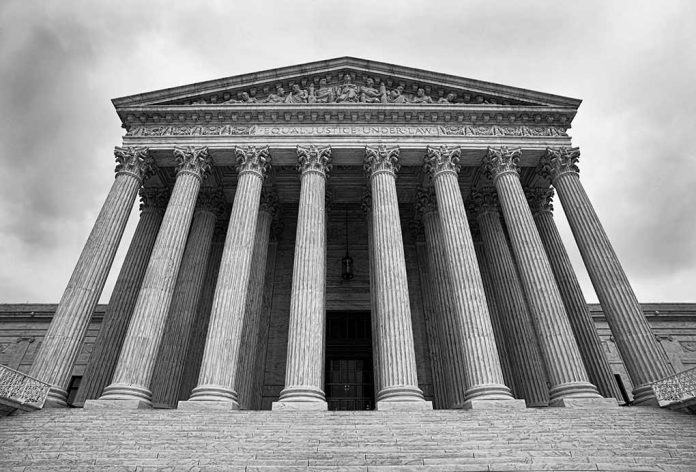
Trina Martin’s story, of a mistaken FBI raid on her Georgia home, reaches the Supreme Court, potentially altering federal accountability for years to come.
Key Takeaways
- The Supreme Court is set to review the mistaken FBI raid on Trina Martin’s home in Georgia.
- The FBI raid occurred due to GPS misdirection during “Operation Red Tape.”
- The family is pursuing legal action against the federal government for damages.
- The case highlights critical issues of federal accountability and judicial interpretation.
- A cross-party coalition supports the family’s fight for justice.
Background of the Case
On October 18, 2017, an FBI SWAT team, partaking in the “Operation Red Tape” anti-gang initiative, mistakenly raided Trina Martin’s home. The raid led to her fiancé being handcuffed, and an overall traumatic experience for her young son. This occurred due to a GPS error directing the team to 3756 Denville Trace instead of the intended target at 3741 Landau Lane.
Trina Martin and her family subsequently filed a lawsuit citing false arrest, negligence, and assault, among other charges. However, the district court ruled in favor of qualified immunity for the FBI agents, a decision later upheld by the 11th Circuit citing the supremacy clause. The Supreme Court will now review this crucial case to determine the relevance of the “discretionary function” exception within the Federal Tort Claims Act (FTCA).
In @NRO, my @IJ colleague Dylan Moore and I discuss our latest Supreme Court case, seeking federal #PoliceAccountability against an FBI SWAT team that raided an innocent family.
We are briefing Martin v. U.S. now.
Argument will be 4/29.
(Thanks to @RealDarylJames.) https://t.co/dYQlq46ZAo pic.twitter.com/rMOVxXFCIW
— Patrick Jaicomo (@pjaicomo) March 2, 2025
Federal Accountability and Court Interpretations
The family’s attorney argues for the need for accountability, despite the rule of immunity for federal employees doing their job. The FTCA was enacted to allow victims to seek redress for wrongful actions by federal employees. Nonetheless, nuances in the law have previously thwarted Martin’s efforts at a judicial remedy. A significant number of organizations and members of Congress have submitted amicus briefs acknowledging the potential impact of this case on federal accountability.
This case underlines the judiciary’s pivotal role in maintaining a robust check-and-balance system and ensuring laws like the FTCA serve their intended purpose without being negated by new judicial interpretations. A wide ideological range supports the case’s movement to the Supreme Court, reflecting its importance and cross-party significance.
Martin expressed her relief, stating, “What happened to us was deeply unjust, and I’m relieved that the Supreme Court is taking up our fight for justice and accountability.”
Significance of the Supreme Court Review
The Supreme Court’s examination could redefine how federal accountability is interpreted regarding mistaken raids, impacting law enforcement tactics and legal ramifications for executive misjudgment. The outcome will potentially reset how federal law balances agent protection with civilian justice.
The Martin case stands as a significant marker in the ongoing discussion on federal operations’ legitimacy and their reconciliations with civilian rights, offering the Judiciary an opportunity to emphasize government accountability and a return to constitutional checks and balances.
Sources:
- FBI SWAT team raided wrong home, but didn’t pay for damages and now SCOTUS has questions
- Support From Across the Ideological Spectrum Pours in for Family Seeking Justice at the Supreme Court Over FBI Wrong House Raid | Constitutional Accountability Center
- Supreme Court will review FBI’s immunity in lawsuit over mistaken house raid



